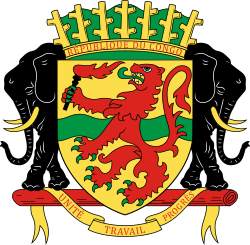 |
|---|
Parliamentary elections were held in the People's Republic of the Congo on 24 June 1973 alongside a constitutional referendum. The country was a one-party state at the time, with the Congolese Party of Labour as the sole legal party. [1] As such, it won all 115 seats in the People's National Assembly. Voter turnout was 83%. [2]
